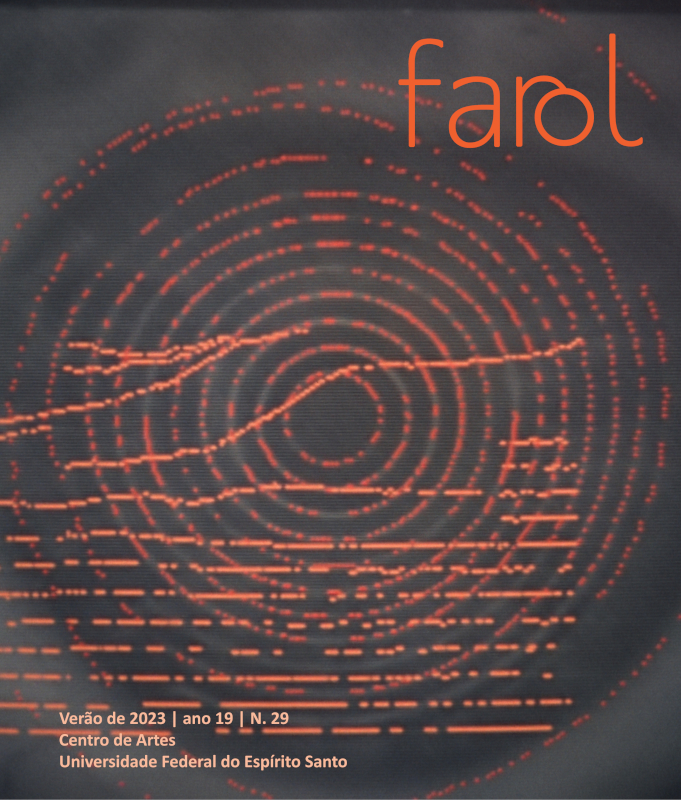Haverá condomínios no espaço de dados?
DOI:
https://doi.org/10.47456/rf.v19i29.43552Palavras-chave:
imagem, cinema, videoarte, Bill ViolaResumo
Pioneiro no campo da videoarte, Bill Viola é um artista seminal para a compreensão das questões relacionadas a esse meio, tanto em seu decurso histórico quanto em sua atualidade. Ao longo dos anos, ele buscou vincular as noções de media como médium, destacando que os canais de vídeo são também canais de transmissão de informações equivalentes as transduções energéticas das incorporações xamânicas. Em Haverá Condomínios no Espaço de Dados?, publicado inicialmente em 1982, Viola explora o passado e o futuro das questões relacionadas à memória, tanto mental quanto artificial, buscando compreender suas trajetórias e seu porvir. Com seu pensamento erudito e visão anacrônica, Viola faz referências a diversos autores, como Ananda K. Coomaraswamy, Tomás de Aquino, Giordano Bruno, Giulio Camilo, Jacobos Publicius, Nikola Tesla, etc. Ele também compartilha experiências pessoais, como sua vivência em monastérios budistas tibetanos e suas interações com os sábios monges de Ladakh que, dotados de uma mentalidade cíclica, desenvolvem sofisticadas mandalas de areia colorida. Além disto, relata uma experiência vivida em sua viagem ao Japão, em 1981, onde conheceu as itako, xamãs cegas providas de conhecimentos mediúnicos, capazes de acessar informações e dados aquém e além deste tempo, comunicando-se com os mortos. Viola pontua que, no período, essa experiência o fez rever suas concepções sobre as corporações e seus dispositivos, incluindo câmeras, televisores e fitas de vídeo de banda magnética que, até então, ele considerava estar muito à frente no desenvolvimento de tecnologias de comunicação. Em suma, para o autor, os avanços tecnológicos de armazenamento coletivo em espaço de dados eletrônico — analógico na época e atualmente digital — têm uma profunda relação com os saberes ancestrais, a memória humana, processos de pensamento e estruturas conceituais no cérebro.
Downloads
Referências
.
Downloads
Publicado
Como Citar
Edição
Seção
Licença
Os autores de trabalhos submetidos à Revista Farol autorizam sua publicação em meio físico e eletrônico, unicamente para fins acadêmicos, podendo ser reproduzidos desde que citada a fonte. Os mesmos, atestam sua orignalidade, autoria e ineditismo.





